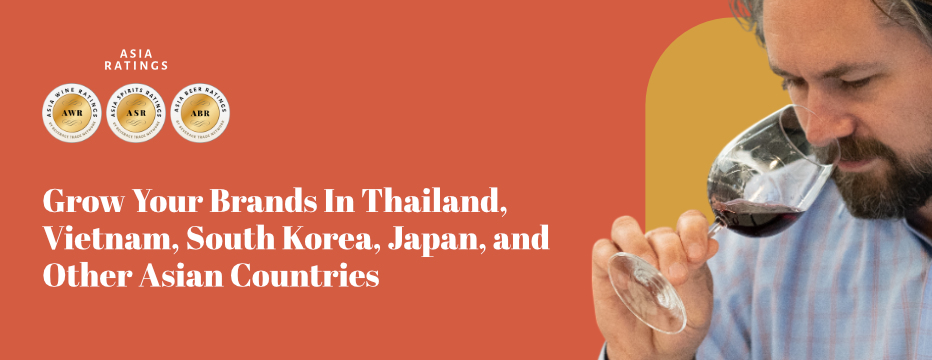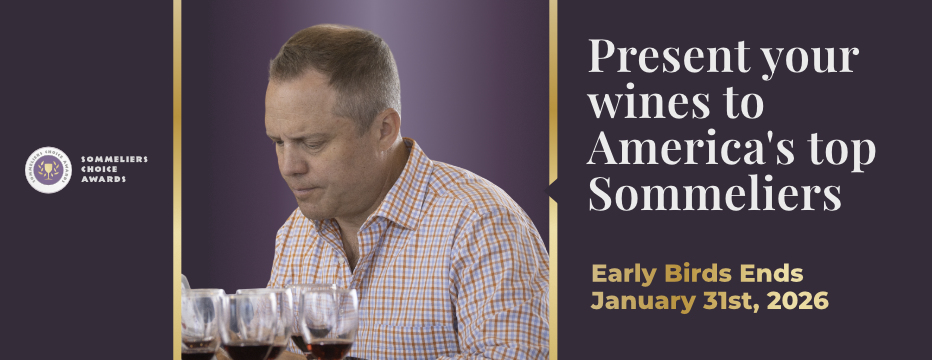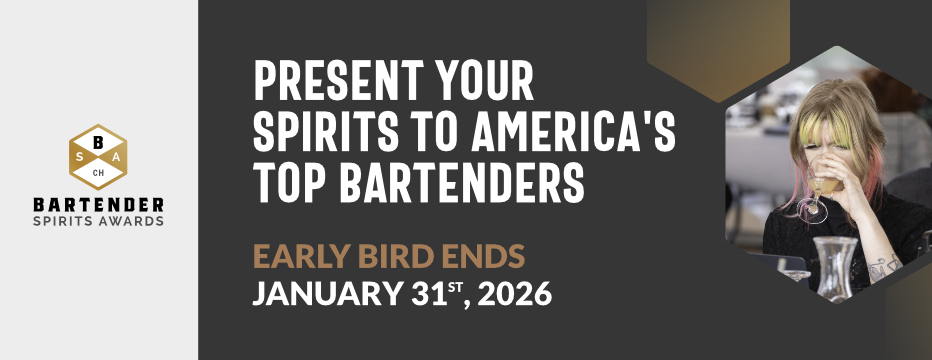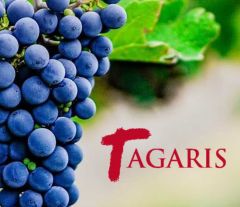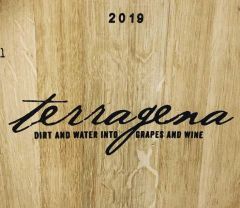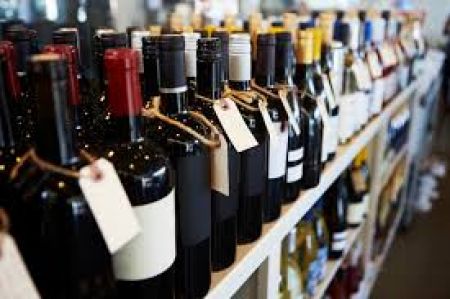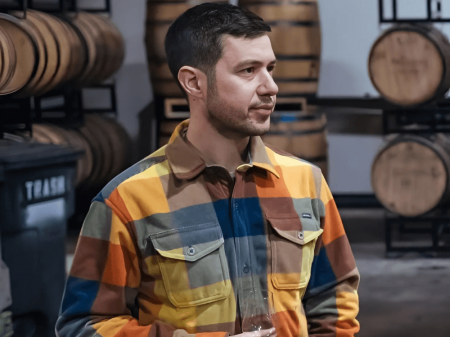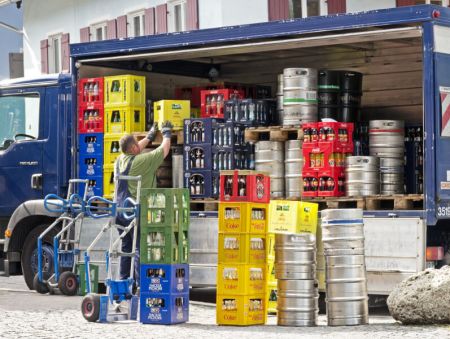Sommeliers Choice Awards 2025 Winners
Redefining Argentina’s Wine Identity: Heritage Grapes and Global Aspirations
How Argentina is blending its roots with global aspirations.
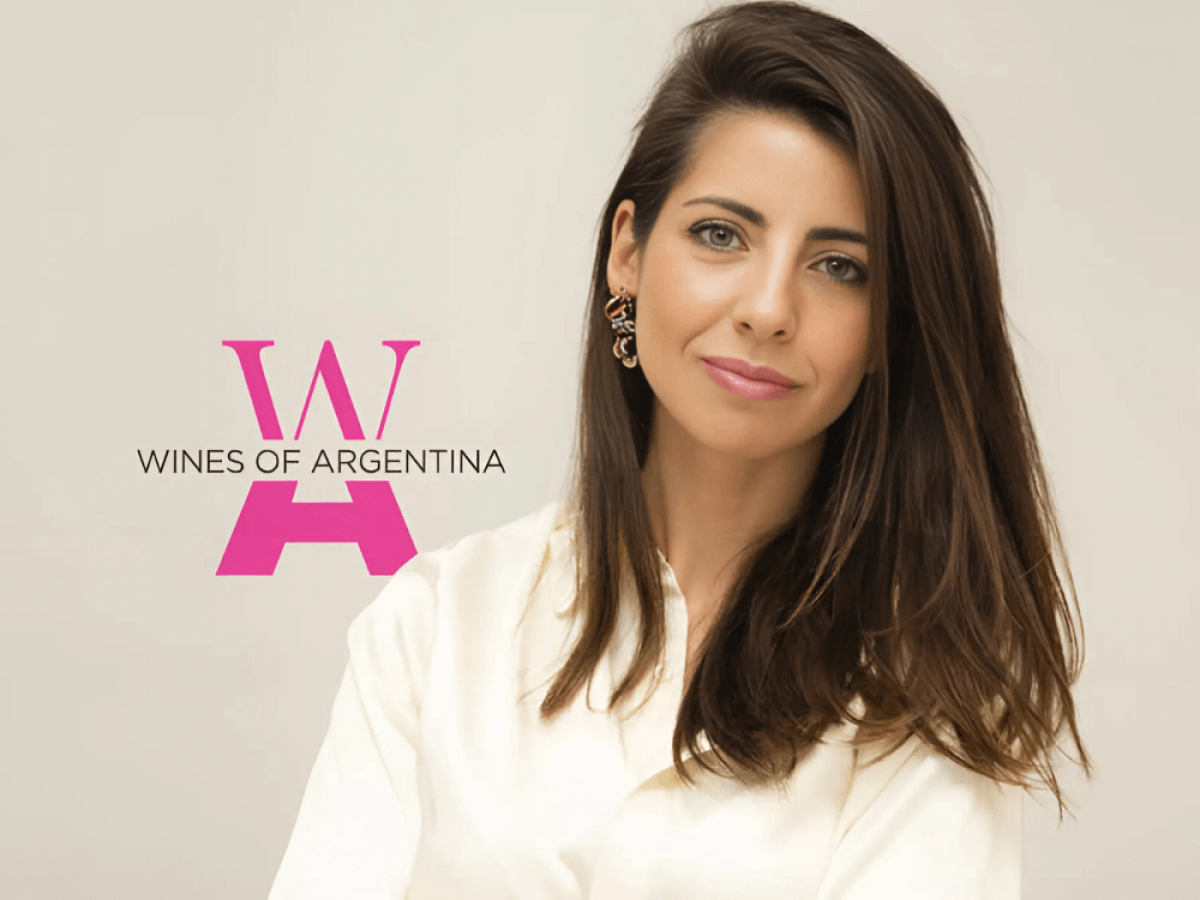
Argentina’s wine story has long been synonymous with Malbec, a grape that has put the country on the global map. However, as Magdalena Pesce, CEO of Wines of Argentina, revealed in this insightful conversation with Malvika Patel, editor of Beverage Trade Network at ProWein 2024, the country’s viticulture is evolving. From native grapes like Torrontés and Criolla to emerging export markets in Poland, South Korea, and the Nordics, Argentina is embracing change while staying true to its roots. With a steadfast commitment to sustainability and an eye on new trends like no/low-alcohol wines, Wines of Argentina is blending heritage with a bold, forward-looking vision.
Malvika: Magdalena, apart from Malbec what are the key grape varieties that Argentina produces today?
Magdalena: Argentina is well known for its Malbec, but we are producing many other grapes because of the size of our country. We have Cabernet Franc, Cabernet Sauvignon from the South, and white wines like Torrentes, a native grape.
Cold or high-altitude areas in Argentina have the potential for Chardonnay and Pinot Noir. We are producing very gastronomic wines with light acidity and balance.
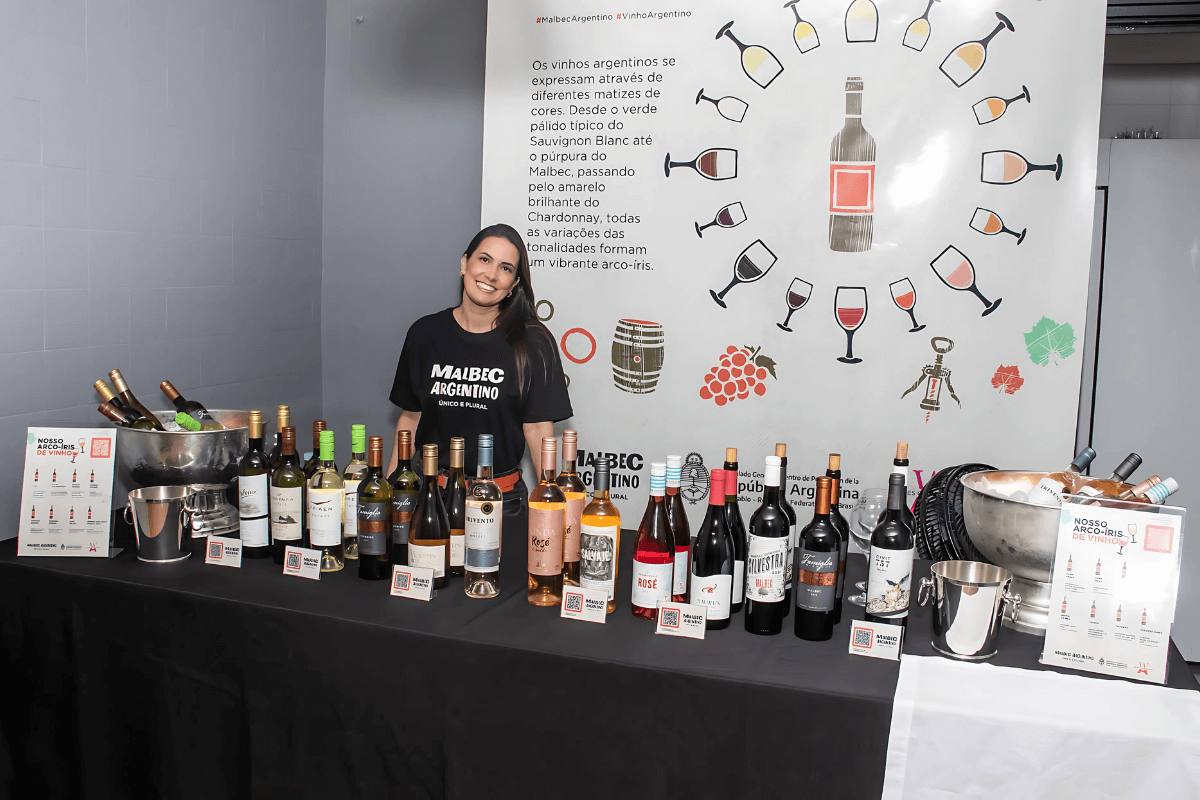
Image: Malbec World Day 2022 em São Paulo, Brasil; Source: Wines of Argentina.
Malvika: Which are the key varieties being exported out of Argentina?
Magdalena: Malbec is still the main variety for us, but white wines and sparkling wines are also increasing in exports. We are seeing a shift in our export composition. However, the majority of our exported wines are still Malbec.
Malvika: What percentage of Argentinian wines are being exported in bulk currently?
Magdalena: It's a tiny proportion because Argentina mostly exports bottled wine. The bulk export is quite minimal. Because of the pricing, sometimes the balance between bottled and bulk shifts, but always bottled is the major proportion of exports.
Malvika: What is your major market for Wines of Argentina?
Magdalena: The US market is still our major focus.
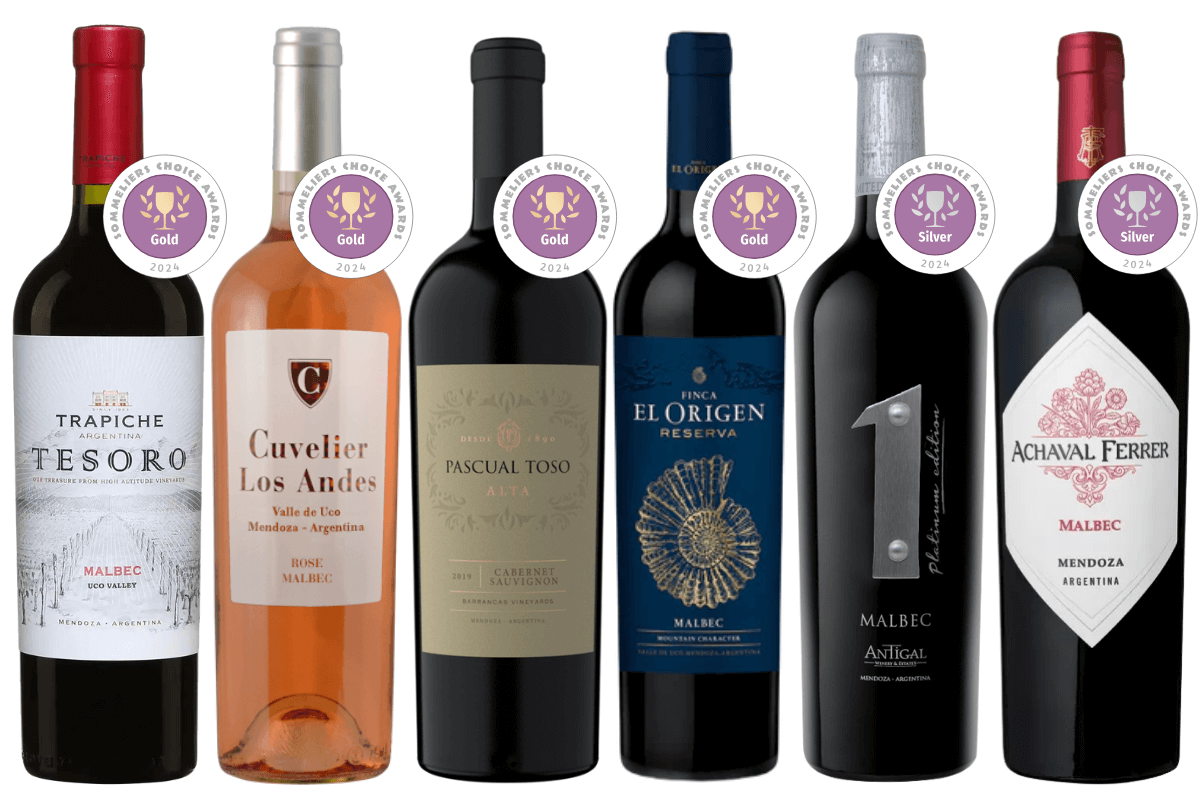
Image: Winners of Sommeliers Choice Awards from Argentina (L-R) Tesoro Malbec; Cuvelier Los Andes Rosé; Pascual Toso Alta Cabernet Sauvignon; Finca El Origen Malbec; Uno Platinum Edition Malbec 2022; Mendoza Malbec.
Malvika: And what are some new and emerging markets that you guys are focusing on right now?
Magdalena: The Poland market and also the Nordics are very interesting, especially because of the sustainability vision they have. That is an important factor for us. Then in Asia, we are exploring South Korea and Singapore and in terms of Latin America, we are focusing on Brazil and Mexico.
Malvika: What's the Mexican wine market like?
Magdalena: It's developing. They are also developing their own wine industry, which is great. As consumers there begin to develop a palate for wine, they will be willing to try wines from other countries as well.
Malvika: What about China? What's happening with the wine market there right now?
Magdalena: China is a question mark right now. The market is quite tough, and Chinese consumers are not drinking wine as much as before.
We have an office there, and we've been investing in a lot of social media with our own channels. So we really care about China. But right now the market is not responding. So my take is that once Australia is back, it will be good because probably they will invest a lot of money in making consumers interested in wine again or more confident to try wines again. So this will help other imported wines as well.
Malvika: What about Japan? It seems like a country where some other wine regions are turning their focus recently.
Magdalena: For Argentina as well, is an interesting market, but is not in focus in terms of sales because we have only two, or three companies selling a lot in Japan, but it's very difficult for us.
Malvika: Why is that so?
Magdalena: Because we have different styles of wines and it is a complicated market to enter. There are a lot of cultural barriers, it's also very expensive because of the taxes.
Malvika: Are there any other emerging markets you are focusing on in Asia?
Magdalena: Yes, we are also exploring Thailand, which recently decided to reduce its taxes on wine imports. This makes it an emerging country for us to invest in. We will be investing in Thailand in the next few years.
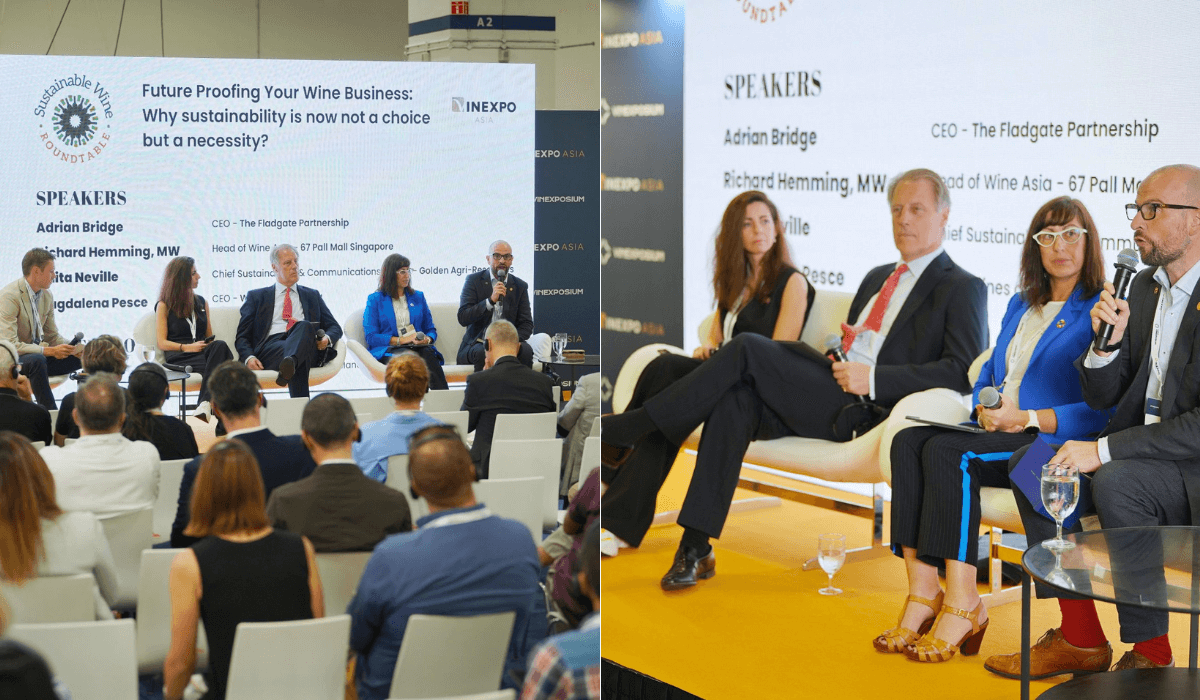
Image: Sustainable Wine Roundtable hosted a sustainability roundtable at VinExpo Asia 2023 in Singapore as part of their program of industry briefings and Conference sessions. Source: LinkedIn post.
Malvika: What do you think of the current no and low alcohol trend that's going on?
Magdalena: I think the no/low trend is not going to be a trend anymore; it's here to stay.
Malvika: How are Argentina's wineries moving towards sustainability?
Magdalena: About 12 or 13 years ago, Laura Catena brought the California Wine Institute Sustainability Protocol to Argentina. That was used as a benchmark. Wineries are certified under the Bodegas de Argentina Sustainability Protocol. Many companies have started to certify under this protocol, and we now have more than 250 production units certified. This protocol is recognized by the Nordic monopolies, Canadian liquor boards, and retailers. We are also working on social and economic sustainability, not just environmental sustainability.
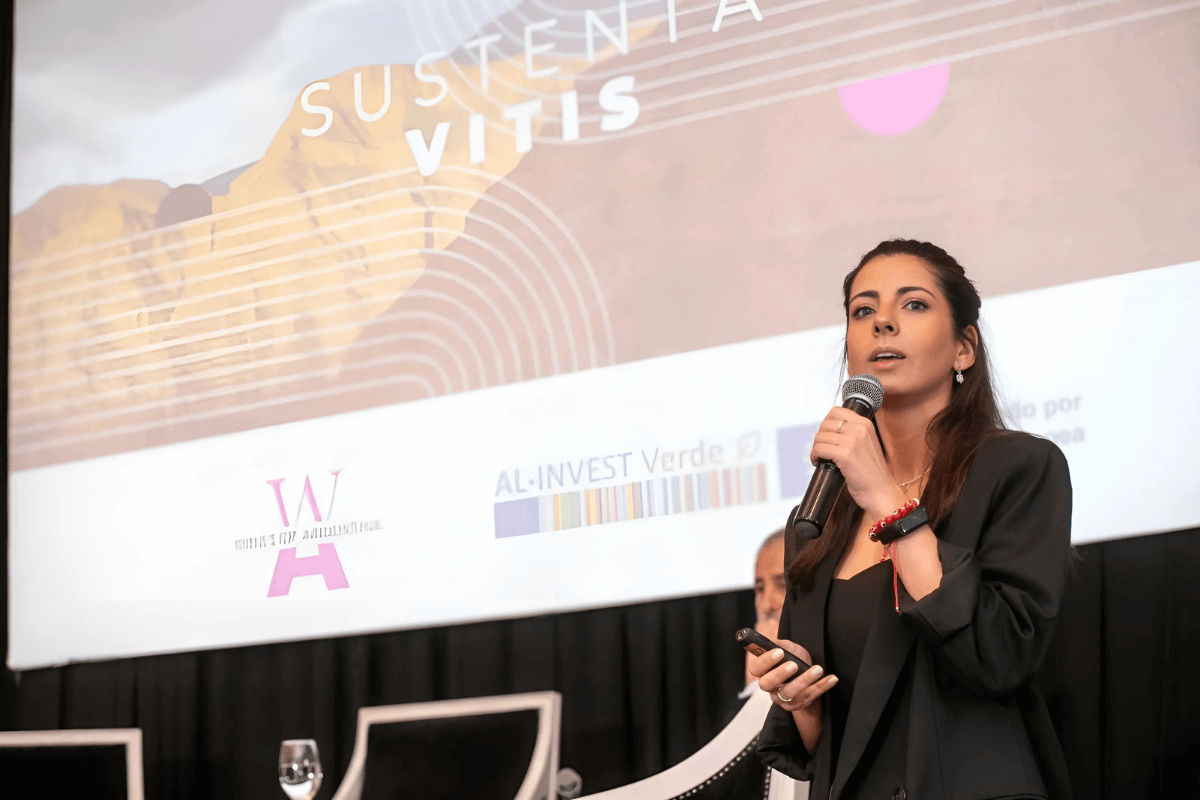
Image: “Sustenta-Vitis” - Wines of Argentina's institutional vision towards a sustainable, diverse, and inclusive viticulture, a comprehensive sustainability program for Vino Argentino. Source: LinkedIn Post.
Malvika: With the inflation in the currency since last year, is that serving the wine industry well for exports?
Magdalena: There are other factors at play as well. For the bulk companies it has been very tough to sell and compete and we had a very short harvest last year because of a big frost we suffered. This year everything is going well with the harvest. We will have more quantity of wines, and the quality is great. So we are very optimistic.
Malvika: That's impressive. Thank you for sharing all this information, Magdalena.
Magdalena: My pleasure. Thank you for having me.
Conclusion
As Argentina navigates the complexities of the global wine market, it continues to balance its heritage with a forward-thinking approach. From expanding into emerging markets to advocating for sustainability certifications, the nation’s wine industry is growing with purpose. Magdalena Pesce’s leadership reflects a commitment to adaptability, whether through championing native grapes or exploring no/low-alcohol trends. While challenges like economic shifts and cultural barriers persist, Argentina’s focus on quality, sustainability, and innovation ensures that its wines remain a compelling choice for the world’s tables.
In conversation with Malvika Patel, Editor and VP, Beverage Trade Network
Also Read:
Leaders at Four of Argentina’s Best Wineries Discuss Terroir: Part One
Leaders at Four of Argentina’s Best Wineries Discuss Terroir: Part Two
Wines of Argentina: Pioneering Sustainability and Export Growth in the National Wine Industry

